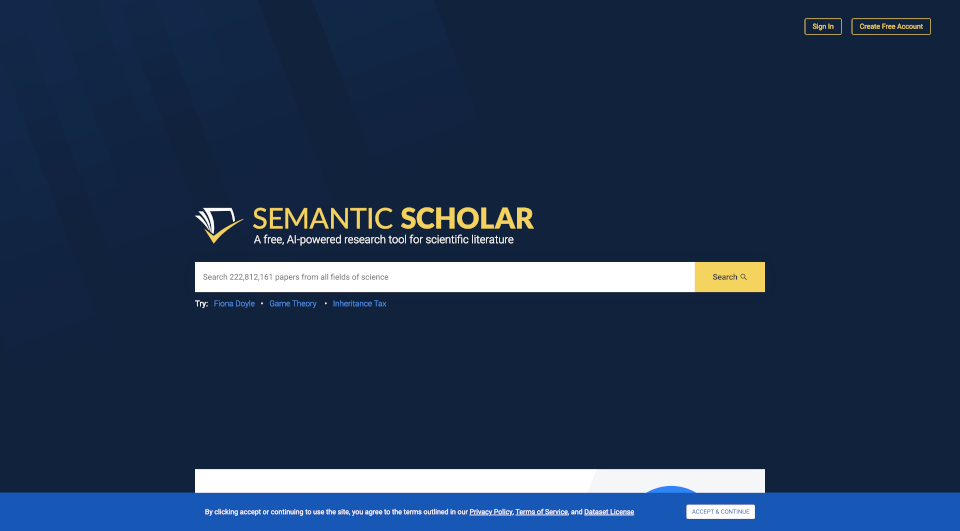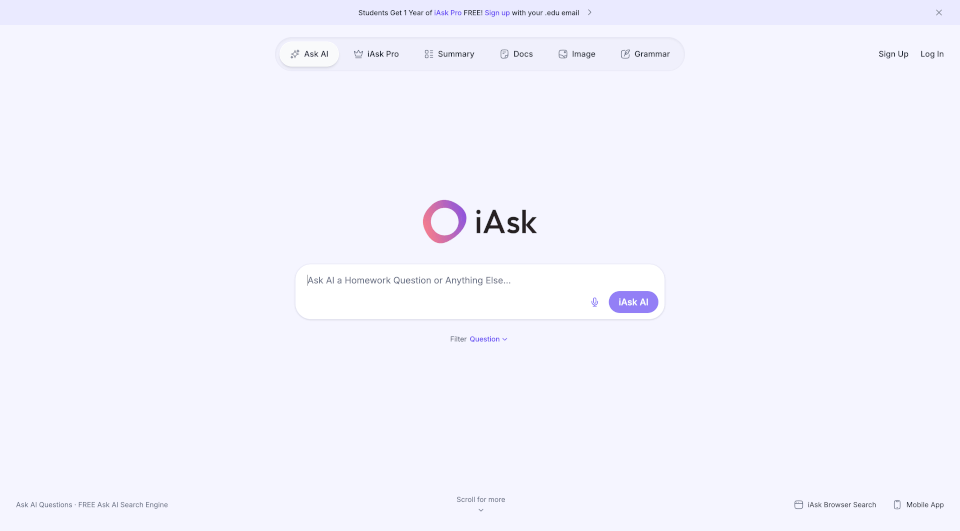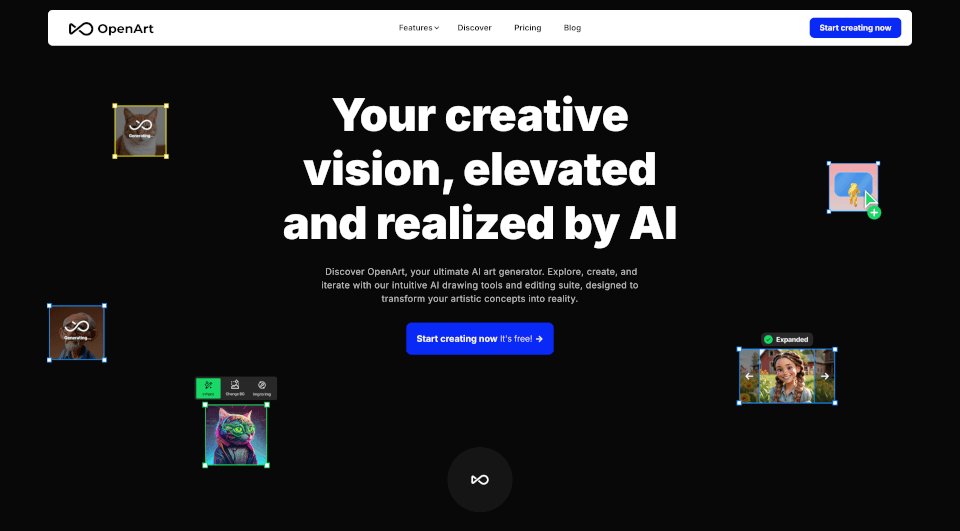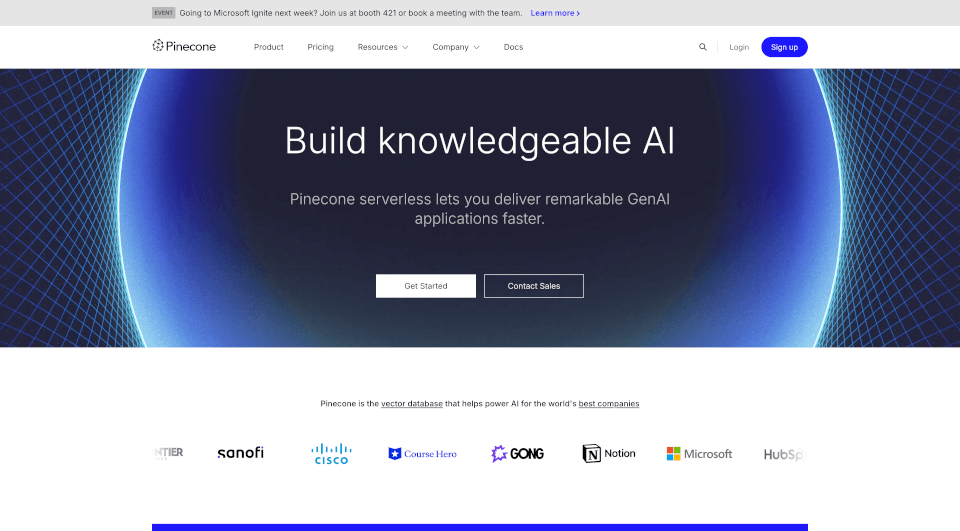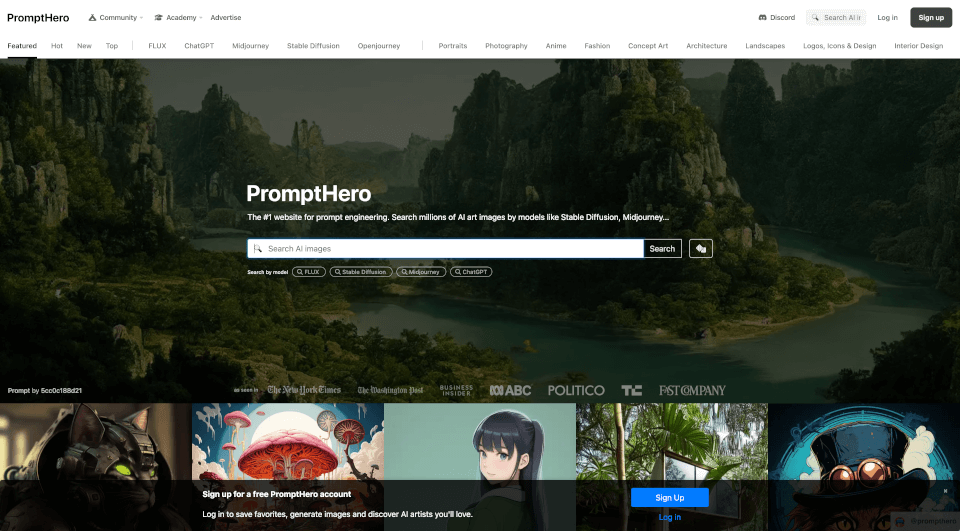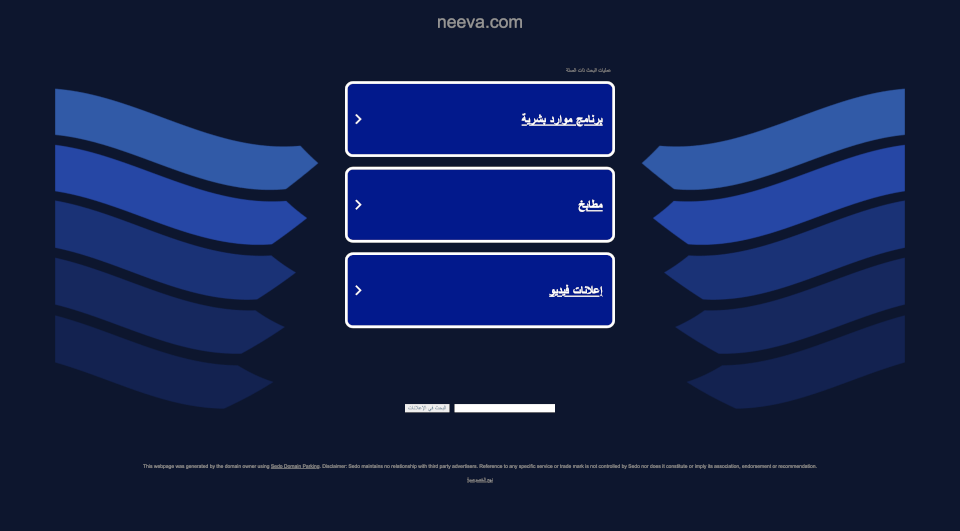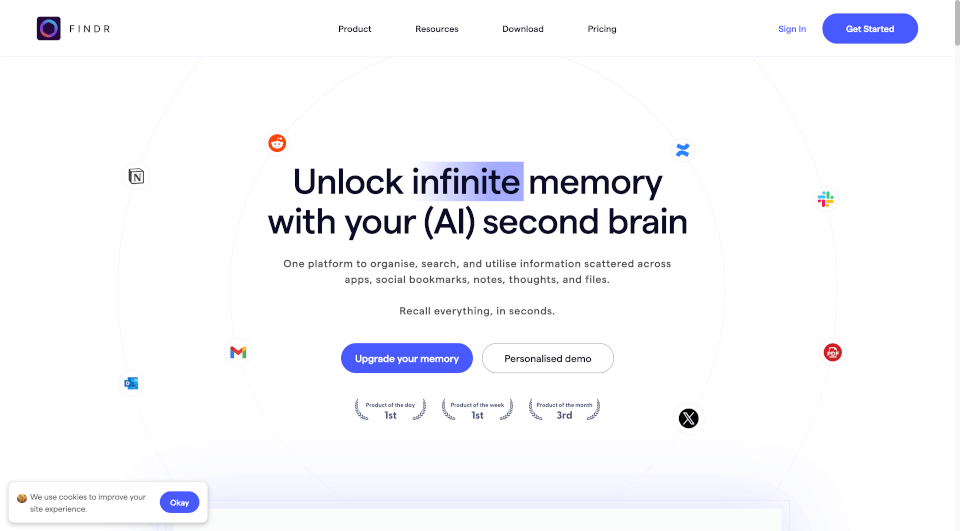What is Semantic Scholar?
Semantic Scholar is a revolutionary, AI-powered research tool designed to enhance the discovery of scientific literature. It leverages cutting-edge artificial intelligence and engineering to comprehend the semantics of scientific works, significantly assisting scholars in finding relevant research across various domains. With the capacity to search over 222 million papers from all fields of science, Semantic Scholar stands out as an indispensable resource for researchers and academics.
What are the features of Semantic Scholar?
- Powerful AI-Powered Search: Semantic Scholar utilizes advanced AI algorithms to provide comprehensive search capabilities, enabling users to efficiently locate pertinent research papers across a plethora of scientific disciplines.
- Semantic Understanding: The platform goes beyond keyword matching by understanding the semantics of the text, offering more contextually relevant search results.
- Augmented Reading Experience with Semantic Reader: Currently in beta, the Semantic Reader enhances the reading process by making scientific literature more accessible and context-rich. It's tailored for select papers, offering a glimpse into the future of intuitive scientific reading.
- New & Improved API: Developers can now leverage an improved API that offers paper search, robust documentation, and increased stability, empowering the creation of innovative apps that utilize scholarly data.
What are the characteristics of Semantic Scholar?
- Comprehensive Literature Database: With access to over 222 million papers, Semantic Scholar covers an extensive range of scientific fields, ensuring that researchers can find the most recent and relevant studies.
- Inclusive Research Environment: By optimizing the efficiency of AI research, Semantic Scholar aims to reduce its carbon footprint while making research accessible to those without deep pockets, promoting an inclusive academic environment.
- Continual Updates and Improvements: The platform is under active development, with regular updates and improvements to its features, ensuring it remains at the forefront of scholarly research tools.
What are the use cases of Semantic Scholar?
- Academic Research: Scholars, scientists, and students can utilize Semantic Scholar to find relevant research papers and literature reviews essential for their academic work, whether writing papers, theses, or dissertations.
- Literature Review and Analysis: Researchers beginning literature reviews can immensely benefit from the comprehensive and semantically-rich search results provided by Semantic Scholar.
- Developing AI and Tech Applications: Developers looking to create applications for academic or research purposes can benefit from the accessible and powerful APIs provided by Semantic Scholar, opening up possibilities for new technological innovations in the research field.
How to use Semantic Scholar?
To get started with Semantic Scholar, users can visit the platform's website and create a free account. Users can then begin searching for scientific literature using keywords, author names, or academic topics. Developers interested in using the Semantic Scholar API can access documentation and tutorials to integrate its capabilities into their applications.
Semantic Scholar Pricing Information:
Semantic Scholar is a free tool for users. However, there might be specific offerings for premium features aimed at developers or enterprises willing to use the platform’s advanced capabilities through its API.
Semantic Scholar Company Information:
Semantic Scholar is developed and maintained by the Allen Institute for Artificial Intelligence (AI2), a leading research institute dedicated to developing AI technologies to benefit humanity.
